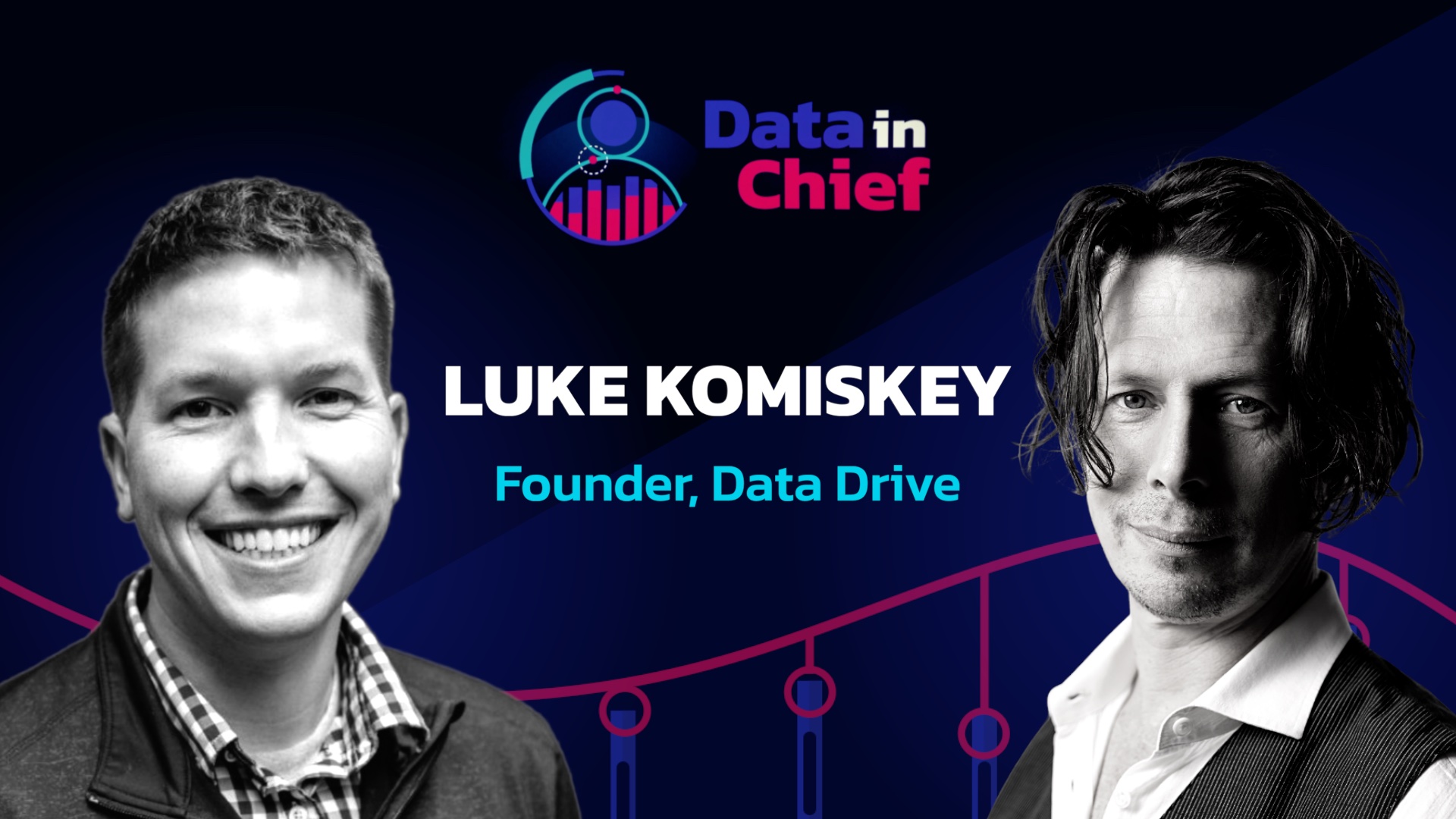
Thought Leadership
DataDrive CEO Talks Managed Analytics Services on “Data in Chief”
On the latest episode of Data in Chief, Action’s founder and Managing Director, Keith Helfrich, talks with Luke Komiskey, a fellow innovator in the business of data analytics and the CEO of DataDrive.
Here are some of the useful idea takeaways from their engaging discussion.
Managed Analytics Services for SMBs
As Luke talks about in the interview, managed analytics services provide a comprehensive solution to the common challenges faced by SMBs in harnessing the power of data analytics. These services are particularly designed to overcome obstacles related to the lack of in-house expertise, resource constraints, and the complexity of data systems. As Luke and Keith discuss, here’s how managed analytics services address these challenges:
Elimination of In-House Data Staff Requirement: One of the primary benefits of managed analytics services is the elimination of the need for SMBs to have in-house data staff. This is crucial for SMBs, which often cannot afford or justify the expense and complexity of maintaining a full-time data analytics team.
Democratizing Data-Driven Decision-Making: By providing cutting-edge analytic solutions, managed analytics services democratize access to data-driven insights. This levels the playing field for SMBs, allowing them to make informed decisions that were previously only possible for larger corporations with more substantial resources.
Long-Term Partnerships and Continuous Improvement: Unlike traditional consulting models that typically involve short-term engagements, managed analytics services foster long-term relationships. This allows for continuous improvement and evolution of data platforms, ensuring that SMBs’ data analytics capabilities remain up-to-date and effective over time.
Access to a Broad Range of Expertise: Managed analytics services give SMBs access to a wide breadth of analytics expertise that would be difficult and costly to replicate in-house. This includes everything from data engineering to advanced analytics, providing a comprehensive analytics capability without the need to hire multiple specialists.
Focus on Core Business: By outsourcing data analytics to managed services, SMBs can focus on their core business operations and strategies. This ensures that data analytics complements their business goals without diverting attention and resources away from essential business functions.
Risk Mitigation: Managed analytics services mitigate the risk associated with hiring, training, and retaining in-house data staff. SMBs benefit from the service provider’s experience, methodologies, and infrastructure, reducing the risk of data projects failing due to inexperience or lack of resources.
Managed analytics services address the specific challenges faced by SMBs in building and maintaining data analytics capabilities by providing expertise, eliminating the need for in-house data staff, fostering long-term relationships, and allowing SMBs to focus on their core business activities.
How SMBs Can Leverage Data Analytics for Growth
In the interview, Luke highlights several key strategies for SMBs to effectively leverage data analytics for growth, even when faced with resource constraints:
Start with the Basics: SMBs should begin by hiring a business or data analyst. This initial step can be a cost-effective way to start exploring the data assets available and understanding the company’s data landscape.
Leverage Modern Tools: The advent of modern data platforms and tools has made it easier for organizations to initiate their data journey. SMBs should take advantage of these technologies to build a foundation in data analytics without the need for extensive in-house expertise.
Focus on ROI: It’s crucial for SMBs to have a clear understanding of the return on investment (ROI) from their data initiatives. Luke suggests playing a “Madlibs” game to define clear objectives: “For us to achieve X, we need to start measuring Y so that we can do Z.” This approach helps in setting measurable goals and aligning data projects with business objectives.
Build a Data-Driven Culture: Encouraging a culture that values data-driven decision-making is essential. This involves educating your team about the importance of data, promoting data literacy, and fostering an environment where data-informed decisions are valued and rewarded.
Managed Analytics Services: For SMBs lacking in-house data talent, partnering with managed analytics service providers can offer a comprehensive solution. These services provide access to a broad range of data skills and expertise, tailored analytics platforms, and ongoing support, allowing SMBs to focus on their core business while leveraging high-quality data analytics.
Iterative Approach: Embrace the iterative nature of data analytics. Start with what you can measure now and improve over time. This gradual approach helps in building and refining the data capabilities without overwhelming the organization.
APIs and Integration: Make use of APIs from existing SaaS platforms to automate data capture and integration. This can streamline data collection processes and ensure a consistent flow of information for analysis.
By implementing these strategies, SMBs can navigate the complexities of data analytics, overcome resource limitations, and harness the power of data to drive growth and innovation.




